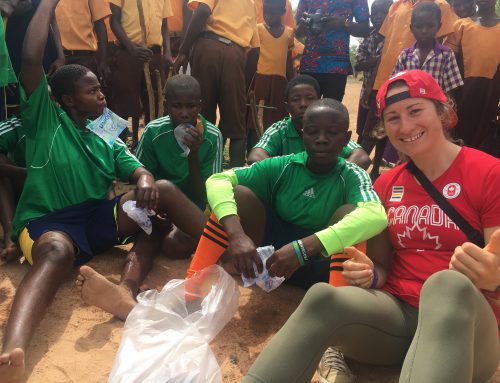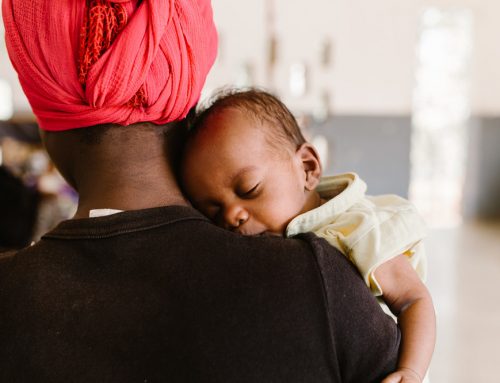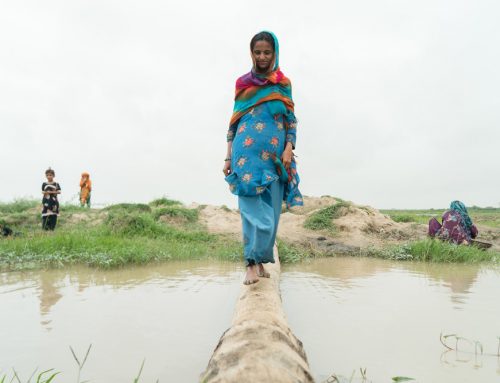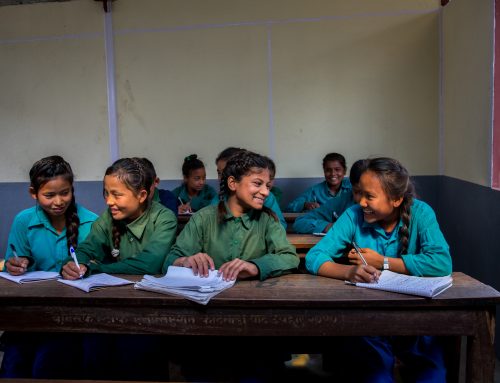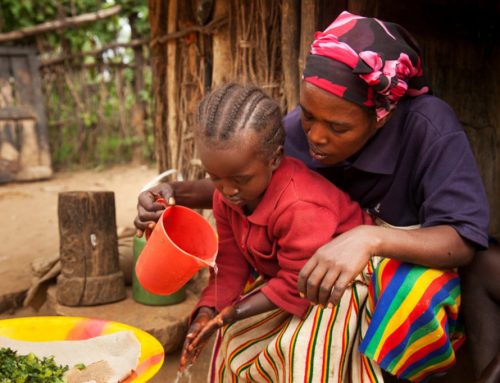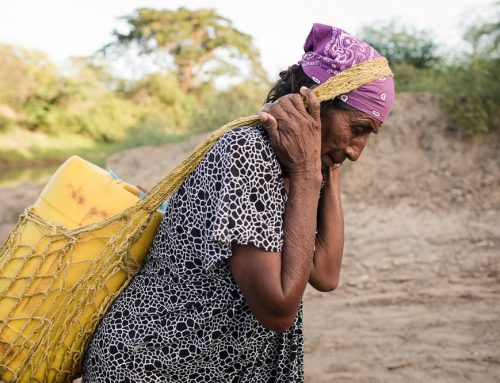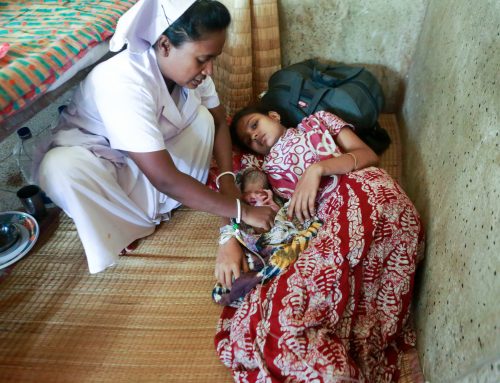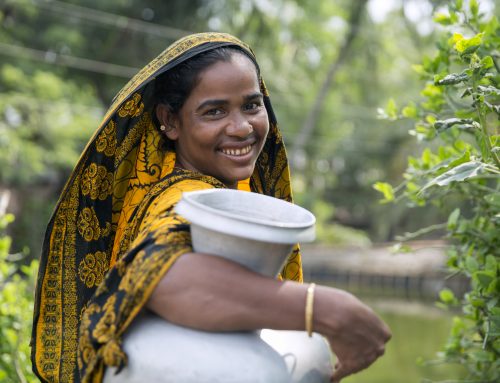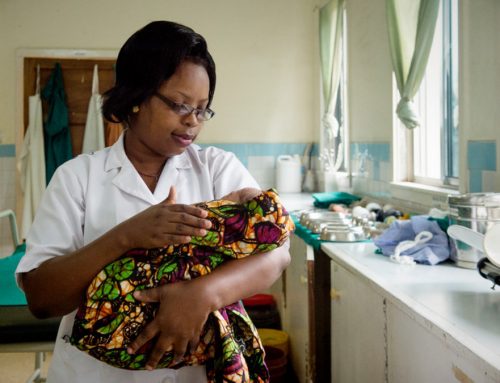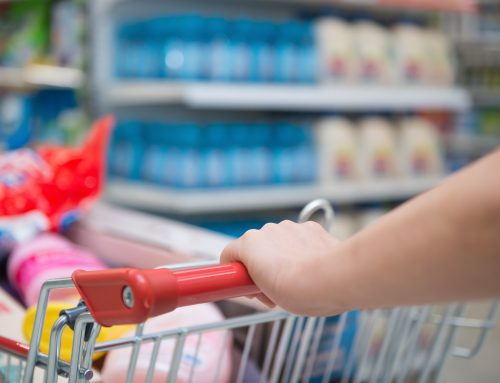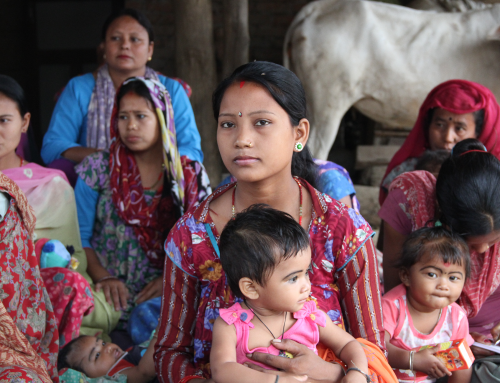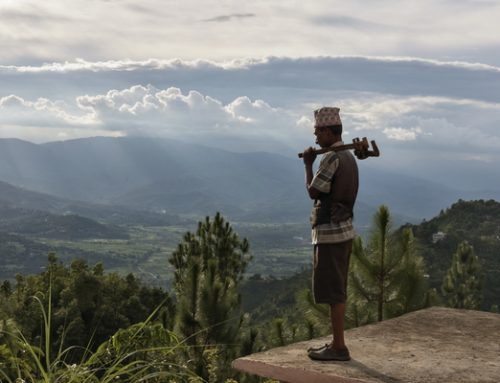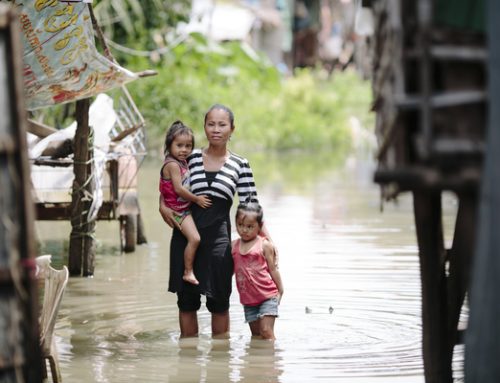In 2009, leaders in the water, sanitation and hygiene sector (WASH) came together to create the global Sanitation and Water for All Partnership. Eight years later, Clare Battle, WaterAid’s Senior Policy Analyst for Governance, explains why the partnership remains relevant.
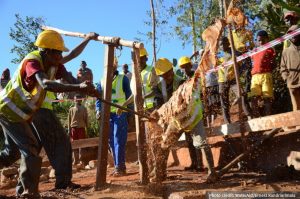
Manual drilling – water transports the cuttings to the surface. Ambohimatsinjo village, Madagascar.
Established in 2009, Sanitation and Water for All (SWA) is the global multi-stakeholder partnership for the WASH sector. Today it brings together over 150 partners across five constituencies: countries; external support agencies; civil society organisations; research & learning organisations; and private sector actors.
WaterAid was a founding member of SWA, and has been actively involved in the partnership since its inception. Our support stemmed from recognition that there was no other inclusive sector platform where governments and partners could come together to address the key bottlenecks standing in the way of progress, and hold each other accountable for sector performance.
Strength in Partnership
Seven years later, a lot has changed, but our original objectives – and the SWA Partnership – remain very relevant.
Today SWA provides a critical platform to ensure progress in implementing the sanitation, water and hygiene targets of the Sustainable Development Goals, building on its track record of success in stimulating high level political interest in WASH and providing a platform for global dialogue and accountability.
Crucially, SWA’s new strategy also positions the Partnership as a catalyst for improved cooperation and sector performance at country level. Evidence shows that strong systems and adequate sector capacity are the cornerstones of sustainable WASH. SWA is able to bring partners together to strengthen planning, implementation, and review processes across the WASH sector, achieving outcomes that individual partners could not realize alone.
Catalysing progress for the poorest and most off track
While the universal scope of the SDG framework has encouraged SWA to broaden its partnership to include a wider range of countries and other partners, the need for joint action remains greatest in the poorest and most off-track countries, if they are to get close to achieving the SDGs.
In these low and lower-middle-income countries, delivering universal access to water, sanitation and hygiene will require both developing countries and their development partners to think, do and behave differently. As a multi-stakeholder partnership, SWA is uniquely positioned to drive such behaviour change.
To drive progress, the Partnership has identified four Collaborative Behaviours which – if adopted by all partners – will help improve the effectiveness of development cooperation in the WASH sector. By tracking progress in adopting these Behaviours, SWA can ensure all partners are held accountable for building the systems and capacities needed to deliver and sustain WASH services to all by 2030.

Looking Ahead
In April 2017, SWA Partners old and new will come together in Washington DC for high level meetings of finance ministers and ministers responsible for water, sanitation and hygiene.
These will be the fourth meetings of their kind, and represent the pinnacle of global dialogue in the WASH sector. Crucially, these meetings are also part of a process of preparation and follow-up at both country and global levels, to ensure global discussions are grounded in country processes and effective in driving change at a local level.
WaterAid will focus on using the momentum from these meetings to encourage partners to come together to map out and execute clear paths toward robust WASH sectors that are capable of delivering water, sanitation and hygiene for all.
Getting there won’t be easy. But by putting partners in the driver’s seat and providing a platform for mutual accountability, SWA is uniquely positioned to facilitate effective collaboration across sector actors. In doing so, the Partnership can drive progress towards a common vision of sanitation, hygiene and water for all.
